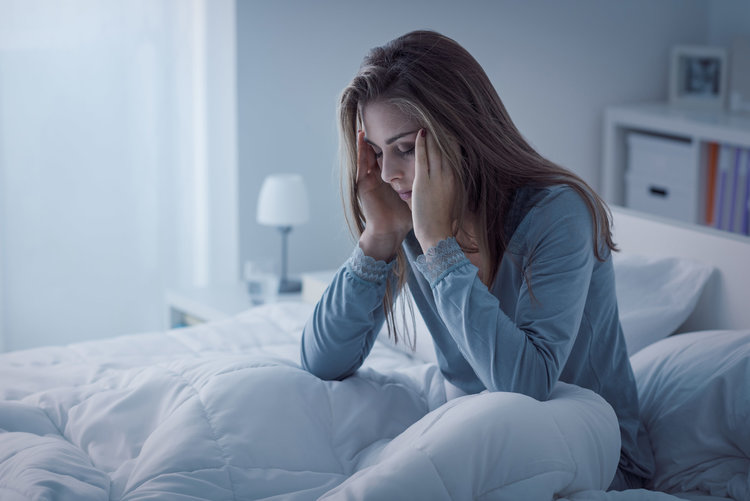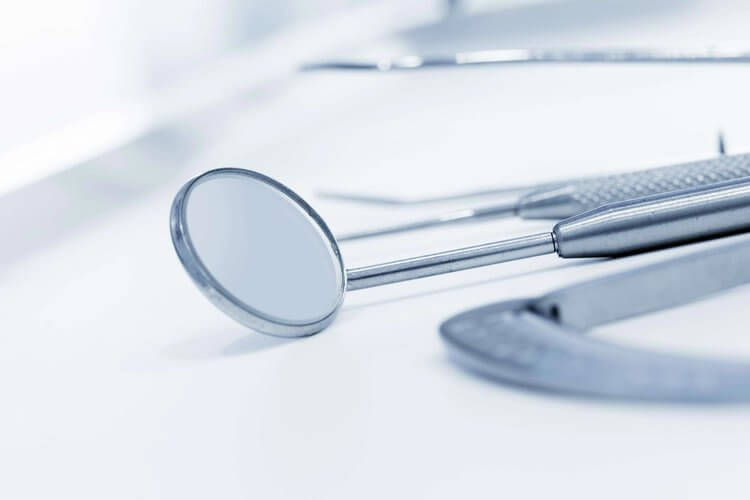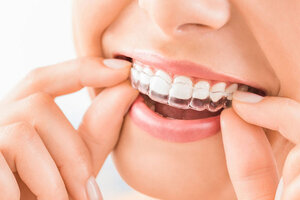
- Scientists have found that many people are experiencing increased teeth grinding and jaw pain during the COVID-19 pandemic.
- This is most likely due to the stress and anxiety associated with the pandemic.
- Anyone who’s under stress is likely to experience jaw clenching and teeth grinding.
- Certain self-help measures like stress reduction and mindfulness may help.
- If you find yourself having chronic pain, it’s a good idea to seek professional help.
If you have found yourself dealing with more dental symptoms, such as teeth grinding, jaw clenching, and jaw pain during the COVID-19 pandemic, this probably isn’t just a coincidence.
It has been proven that stress for one’s own health concerns, financial concerns from the epidemic, and health concerns for family may lead to daytime clenching and grinding.
What The Study Found
The study, which was published on Oct. 12 in the Journal of Clinical Medicine, used a questionnaire to examine whether participants had experienced worsening symptoms during the COVID-19 pandemic.
The study authors noted that the stress and anxiety associated with the constant threat of illness, economic concerns, and social isolation could lead to adverse health effects like temporomandibular disorders (TMD) and bruxism (teeth grinding).
Their study was aimed at confirming whether this was the case.
Nearly 1,800 people residing in Israel and Poland took part in the study.
The researchers found that during Israel’s first lockdown, there was a rise in orofacial pain, which is a symptom generally associated with stress and anxiety.
In addition, the prevalence of this symptom increased from about 35 percent prior to the pandemic to 47 percent during. And the prevalence of jaw clenching during the day increased from about 17 percent to 32 percent.
Also, teeth grinding at night went from about 10 percent to 36 percent.
The overall severity of the symptoms also rose by about 15 percent.

How to know if you’re clenching and grinding?
Anyone stressed could be at risk — anyone challenged to balance conditions and emotions is susceptible to clenching and grinding.
Regarding potential symptoms, clenching during waking hours is easy to recognise because people are awake.
People who grind overnight often wake up with a sore jaw, stiff neck, or pain referred around the head and neck. This pain may mimic an earache or headache.
Another important sign to look for is tooth wear.
What you can do to help yourself
Self-care during the pandemic is absolutely essential. This includes stress relief and mindfulness.
It’s also important to keep up with your regularly scheduled dental and medical checkups. Research shows that putting off care visits aimed at maintenance and simple procedures results in negative consequences, including the need for more complicated treatment later on.
The Australian Dental Association has worked to implement COVID-safe treatment protocols to help keep you safe from infection during your dental visits.
Finally, although there’s no easy way to combat stress, dentists can provide you a customized night guard to protect your teeth from the effects of clenching and grinding.
You can also try a smartphone app that will give you an alert to keep your teeth apart.
If you don’t have a smartphone, he said, you can get small stickers to put on items that you look at throughout the day, like your phone or your remote control, to serve as a visual reminder to not clench your teeth.

When to see a professional for help
If you’re having chronic jaw pain or are noticing that you have a chronic habit of clenching or grinding or are being told by a bed partner that they can hear you grinding your teeth, these are all signs that you should seek professional help.
One thing that a dentist can do for you is to create a custom night guard to protect your teeth.
A night-time appliance may help the symptoms of bruxism and protect teeth from wear, although it likely doesn’t stop the grinding.
Another thing that a medical professional can help you with is to determine if there are any medications or illnesses that might be causing you to grind your teeth.
Selective serotonin re-uptake inhibitor (SSRI) and serotonin-norepinephrine re-uptake inhibitor (SNRI) medications for depression and anxiety can potentially cause teeth grinding. Switching medications or dosages may be helpful when appropriate.
Sleep disorders like sleep apnea can also be a cause of nighttime teeth grinding, said Arman, so management of these conditions might help some patients.
Seeing a psychologist for cognitive behavioral therapy or biofeedback can be helpful if you have a habit of clenching that you need help breaking.
As far as medications, injections of Botox can help the jaw relax, according to Arman, but they need to be repeated several times a year.
Finally, over-the-counter medications can provide short-term relief from the pain, but they’re not cures.
Talk To Us
Visit our dentist for regular checkups, especially if you notice jaw pain or teeth grinding. Call Morgan Street Dental Centre today on 02 69219500!
